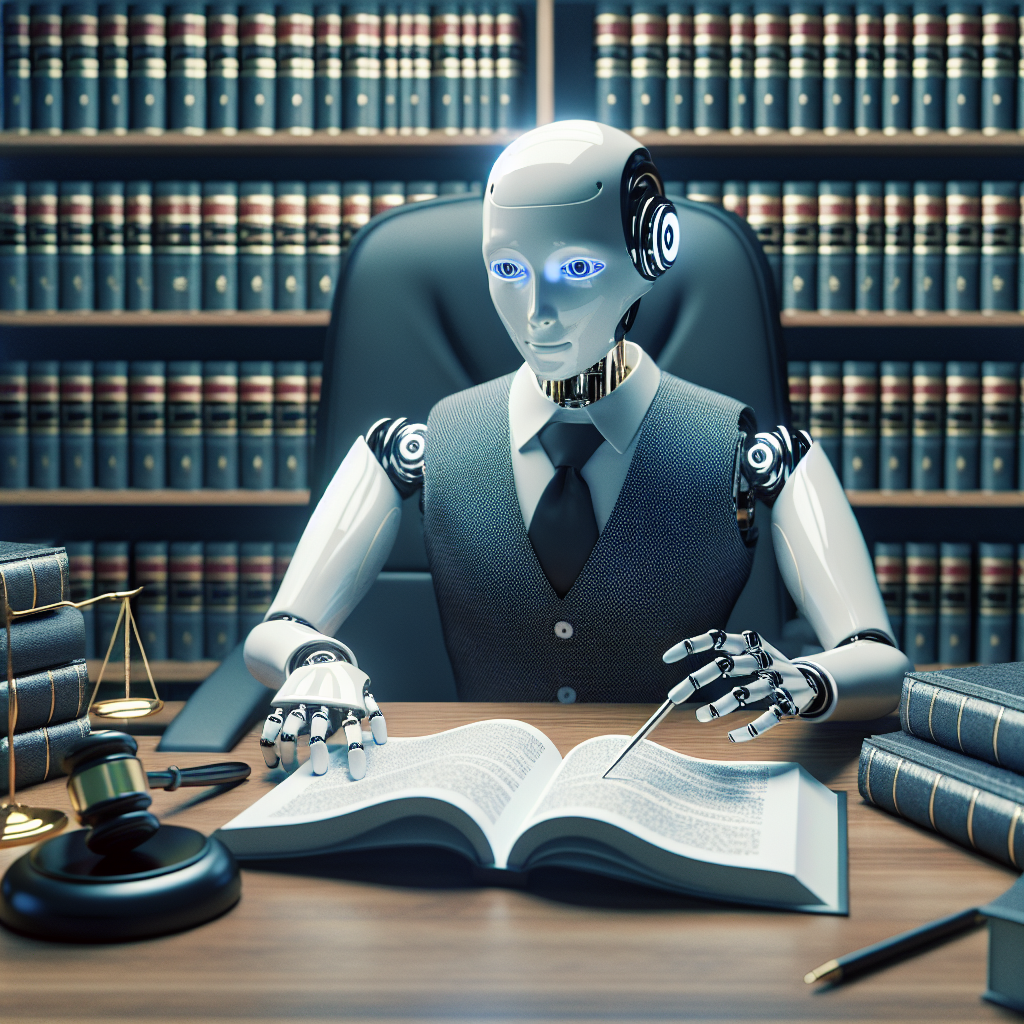Artificial intelligence (AI) technology has been revolutionizing various industries, and the legal sector is no exception. The use of AI software in legal services is becoming increasingly common, with law firms and legal departments leveraging AI tools to improve efficiency, accuracy, and overall productivity. In this article, we will explore the various ways in which AI software is being used in the legal industry, the benefits it offers, and some common FAQs about AI in legal services.
One of the primary ways in which AI software is being utilized in legal services is in document review and analysis. Traditionally, lawyers have had to manually review and analyze large volumes of legal documents, which is not only time-consuming but also prone to human error. AI-powered software, on the other hand, can quickly scan and analyze thousands of documents in a fraction of the time it would take a human, while also significantly reducing the risk of errors.
AI software can also be used for legal research, helping lawyers find relevant case law, statutes, and other legal materials more efficiently. By inputting specific search queries, AI tools can quickly sift through vast databases to identify relevant information, saving lawyers valuable time and allowing them to focus on more strategic aspects of the case.
Another common use of AI software in legal services is in contract analysis and management. AI-powered tools can review and analyze contracts to identify key terms, risks, and inconsistencies, helping lawyers draft contracts more effectively and ensure compliance with legal requirements. Additionally, AI software can help manage contracts by tracking key dates, deadlines, and obligations, reducing the risk of missed deadlines or overlooked provisions.
AI software is also being used in legal analytics, which involves using data and AI algorithms to gain insights into legal trends, outcomes, and strategies. By analyzing data from past cases and legal documents, AI tools can help lawyers predict the likely outcomes of a case, assess the strengths and weaknesses of legal arguments, and develop more effective legal strategies.
The benefits of using AI software in legal services are numerous. By automating repetitive tasks such as document review and contract analysis, AI tools can help lawyers save time and focus on more strategic and high-value work. AI software can also improve the accuracy and quality of legal work by reducing the risk of human error and providing more comprehensive and thorough analysis of legal documents. Additionally, AI tools can help lawyers stay up-to-date with the latest legal developments and trends by quickly scanning vast amounts of legal information.
Despite the many benefits of using AI software in legal services, there are also some challenges and concerns to consider. One common concern is the potential for bias in AI algorithms, which can lead to unfair or discriminatory outcomes. It is important for lawyers and legal professionals to be aware of the limitations of AI software and to carefully review and validate the results produced by AI tools. Additionally, there may be concerns about the impact of AI technology on the job market for legal professionals, as some tasks traditionally performed by lawyers may become automated by AI tools.
FAQs:
Q: How can AI software help improve efficiency in legal services?
A: AI software can help improve efficiency in legal services by automating repetitive tasks such as document review, contract analysis, and legal research. This allows lawyers to save time and focus on more strategic and high-value work.
Q: Will AI software replace lawyers in the future?
A: While AI software can automate certain tasks traditionally performed by lawyers, it is unlikely to replace lawyers entirely. AI tools are best used as a supplement to legal work, helping lawyers improve efficiency, accuracy, and productivity.
Q: How can lawyers ensure the accuracy and reliability of AI software?
A: Lawyers can ensure the accuracy and reliability of AI software by carefully reviewing and validating the results produced by AI tools. It is important for legal professionals to understand the limitations of AI algorithms and to use AI software as a tool to support their work, rather than as a replacement for human judgment.
In conclusion, the use of AI software in legal services is becoming increasingly common, offering numerous benefits to lawyers and legal professionals. By automating tasks such as document review, legal research, and contract analysis, AI tools can help improve efficiency, accuracy, and overall productivity in the legal industry. While there are challenges and concerns to consider, the potential benefits of using AI software in legal services are significant, making it a valuable tool for modern legal practices.

